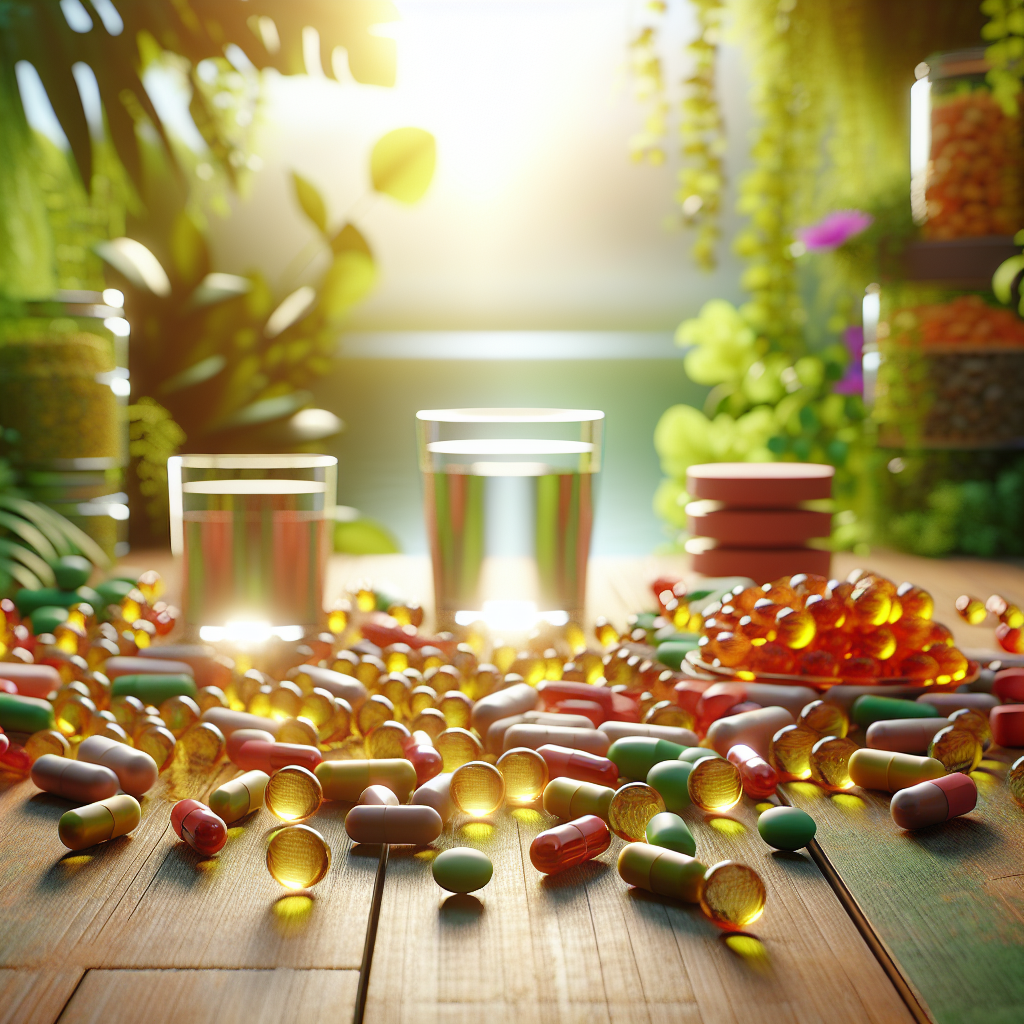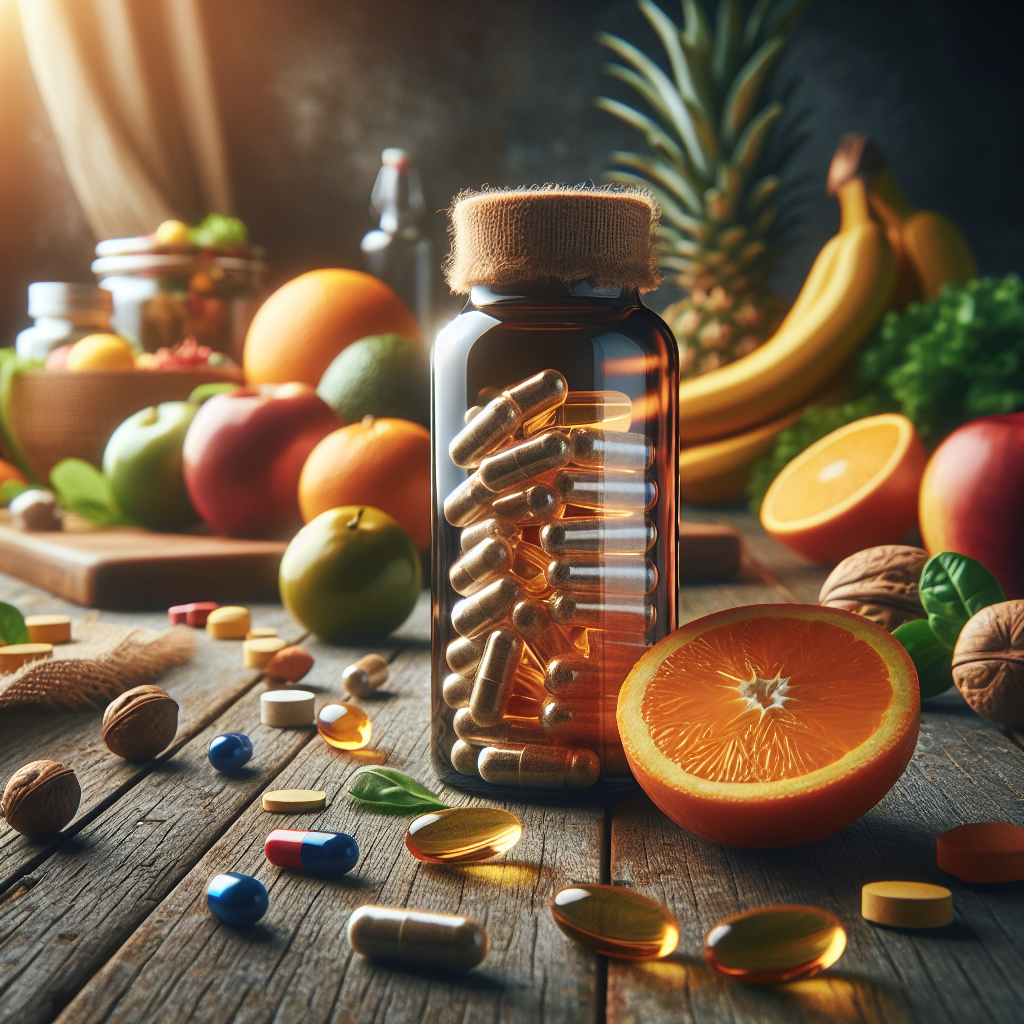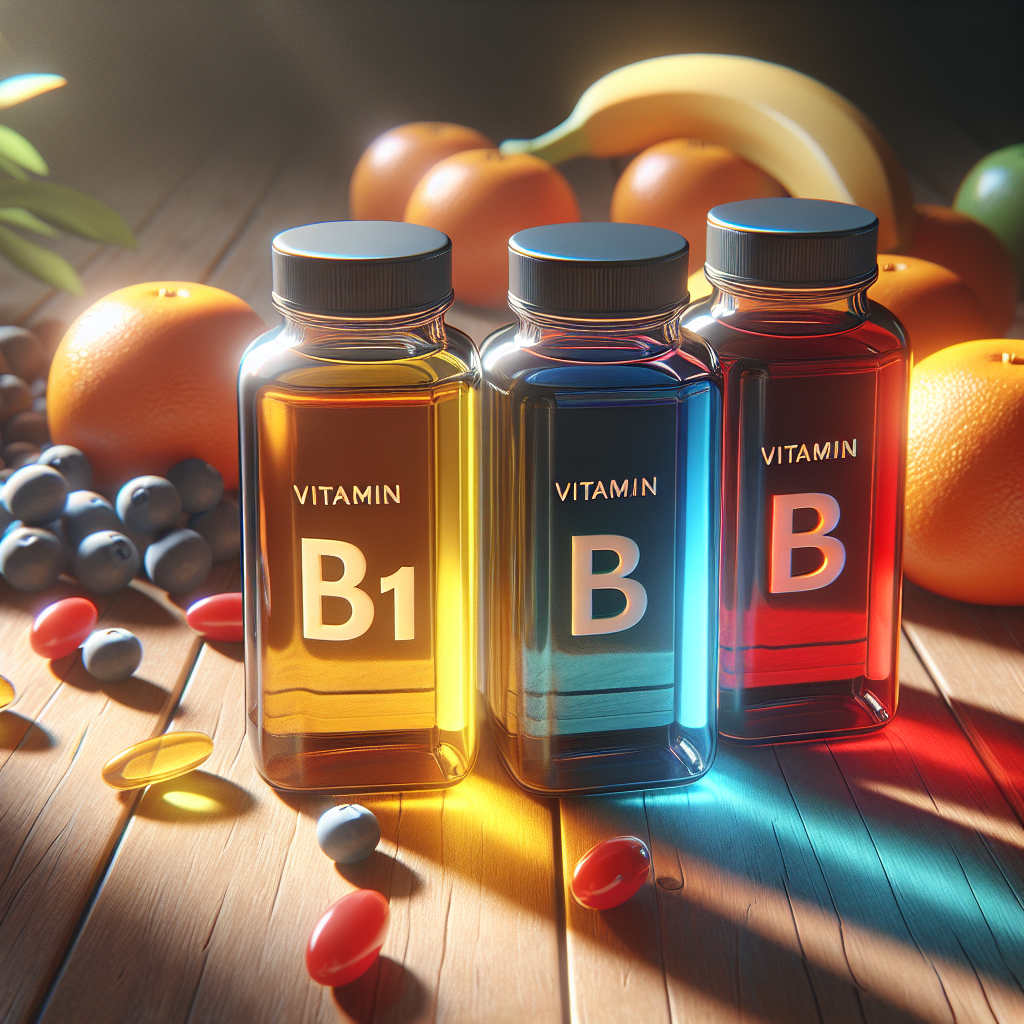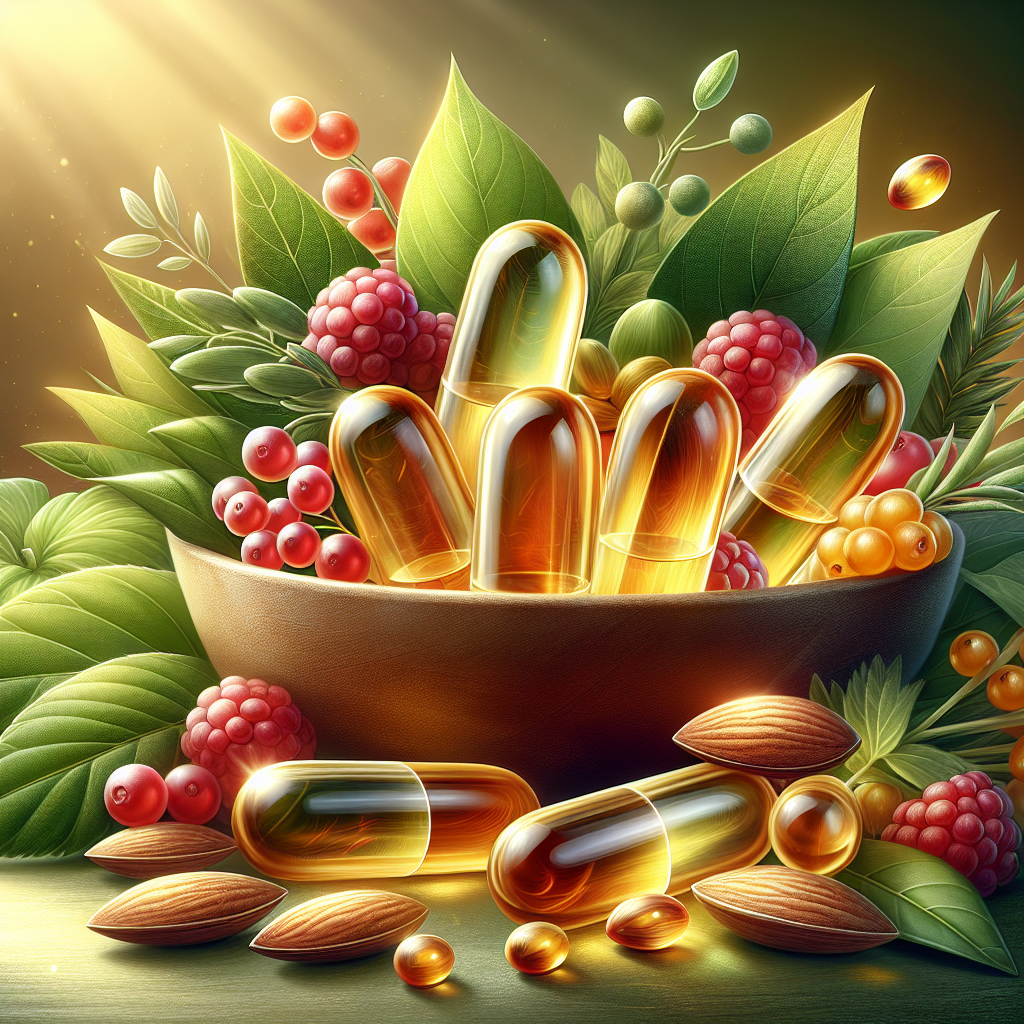Essential Vitamins for Alcohol Recovery: Boost Your Healing
When it comes to bouncing back from a night of indulgence, understanding the role of alcohol recovery vitamins is crucial. Alcohol consumption can deplete essential nutrients in the body, leading to feelings of fatigue, irritability, and other unpleasant symptoms the next day. This is where vitamins come into play, acting as a natural remedy to replenish what has been lost.
One of the most vital vitamins for recovery is Vitamin B1, also known as thiamine. This essential nutrient plays a key role in energy metabolism and helps maintain the nervous system's health. Alcohol interferes with the absorption of thiamine, leading to deficiency, which can exacerbate hangover symptoms. By ensuring adequate thiamine levels, you can significantly improve your recovery process.
In addition to Vitamin B1, other B vitamins, such as B6 and B12, are also important. They contribute to the production of red blood cells, support brain function, and help reduce fatigue. A well-rounded approach to replenishing these nutrients can make a significant difference in how you feel after a night out.
To effectively combat hangover symptoms, consider incorporating a hangover prevention patch into your routine. These patches contain thiamine and other essential vitamins, providing a convenient way to ensure your body receives the nutrients it needs. Cure the Hangover before it happens! Visit boozebandage.com to learn more about how our products can help you enjoy a better morning after.
Key Vitamins for Supporting Alcohol Recovery

Understanding the specific vitamins that aid in alcohol recovery can empower individuals to make informed choices about their post-drinking health. Here are some of the key vitamins known for their supportive roles:
- Vitamin B1 (Thiamine): As previously mentioned, thiamine is crucial for energy metabolism and nervous system function. Its deficiency can lead to mood swings and lethargy, making it essential for recovery.
- Vitamin B6 (Pyridoxine): This vitamin supports the synthesis of neurotransmitters, which play a vital role in mood regulation. Ensuring sufficient B6 levels can help alleviate anxiety and irritability often experienced after drinking.
- Vitamin B12 (Cobalamin): Essential for red blood cell production, B12 aids in preventing fatigue and supports overall energy levels. A deficiency can lead to feelings of weakness, making it important for recovery.
- Vitamin C: Known for its immune-boosting properties, Vitamin C also helps combat oxidative stress, which can be intensified by alcohol consumption. This vitamin aids in the healing process and promotes overall wellness.
- Folate (Vitamin B9): Folate is essential for DNA synthesis and repair, and its role in mood regulation can be particularly beneficial during recovery. It helps in maintaining a balanced mood, reducing feelings of depression.
Incorporating foods rich in these vital vitamins or using supplements can facilitate quicker recovery and enhance your overall well-being after a night of drinking. A balanced approach that includes these vitamins can be a game-changer in how you feel the morning after.
How Vitamin B1 Aids in Hangover Prevention

Vitamin B1, commonly known as thiamine, plays a pivotal role in the body’s ability to metabolize alcohol and is instrumental in preventing hangovers. The body requires thiamine for several critical processes, including:
- Energy Production: Thiamine is essential for converting carbohydrates into energy, which is vital after alcohol consumption. Alcohol metabolism can deplete your energy reserves, leading to fatigue and lethargy.
- Nervous System Support: Thiamine helps maintain a healthy nervous system. Alcohol can disrupt neurotransmitter function, leading to mood swings and irritability. Adequate thiamine levels can help stabilize these effects.
- Reduction of Oxidative Stress: Thiamine has antioxidant properties that help combat oxidative stress caused by alcohol metabolism. This can reduce cellular damage, promoting quicker recovery and less severe hangover symptoms.
- Improved Cognitive Function: A hangover often comes with cognitive impairments, such as difficulty concentrating and memory issues. Thiamine plays a role in cognitive function, helping you maintain mental clarity.
Incorporating thiamine into your hangover prevention strategy can significantly enhance your recovery experience. Many people find that taking a thiamine supplement or consuming foods rich in this vitamin before or after drinking can help mitigate hangover symptoms. By prioritizing thiamine, you are not only addressing immediate discomfort but also supporting long-term health.
Natural Sources of Alcohol Recovery Vitamins

While supplements can be effective, incorporating natural sources of vitamins into your diet is a holistic approach to alcohol recovery. Several foods are rich in essential vitamins that aid in replenishing what alcohol consumption depletes. Here are some key natural sources of alcohol recovery vitamins:
- Vitamin B1 (Thiamine): Found in whole grains, legumes, nuts, and seeds, thiamine helps the body process alcohol and supports energy production. Including brown rice, oats, and lentils in your meals can boost your thiamine intake.
- Vitamin B6: This vitamin is crucial for neurotransmitter function and can be found in bananas, potatoes, chicken, and fish. It helps alleviate mood swings and fatigue often associated with hangovers.
- Folic Acid (Vitamin B9): Leafy greens, beans, and citrus fruits are excellent sources of folic acid, which plays a significant role in cell repair and regeneration. Adequate folate levels can enhance overall recovery.
- Vitamin C: Known for its antioxidant properties, vitamin C can be found in fruits like oranges, strawberries, and kiwi. It helps reduce oxidative stress and supports the immune system.
- Magnesium: Nuts, seeds, whole grains, and leafy greens are rich in magnesium, which can help alleviate headaches and muscle tension after drinking.
Incorporating these foods into your diet not only helps replenish essential vitamins but also supports overall health. By focusing on these natural sources, you can enhance your body’s ability to recover from alcohol and maintain a balanced lifestyle.
Integrating Vitamins into Your Recovery Routine

Integrating vitamins into your recovery routine is a strategic approach to mitigate the effects of alcohol consumption and promote healing. By understanding how to effectively incorporate these essential nutrients, you can enhance your body's recovery process significantly. Here are several ways to effectively include vitamins into your daily regimen:
- Daily Supplements: Consider taking high-quality vitamin supplements that contain a blend of B vitamins, particularly thiamine, B6, and B12. These can help replenish nutrients lost during drinking, especially if you have a busy lifestyle that makes it challenging to consume enough through food alone.
- Meal Planning: Prepare meals that are rich in recovery vitamins. Focus on incorporating foods high in folic acid, vitamin C, and magnesium. Planning ahead can ensure you have nutritious options readily available when you need them most.
- Hydration: Pair your vitamins with proper hydration. Drinking plenty of water, alongside vitamin-rich beverages such as smoothies or fresh juices, can enhance the absorption of nutrients and aid in flushing out toxins.
- Timing: Take vitamins at optimal times for maximum absorption. For instance, consuming B vitamins in the morning can provide an energizing boost, while magnesium may be more beneficial in the evening to promote relaxation and recovery.
- Consult a Professional: If you're unsure about which vitamins to take or how to integrate them effectively, consulting with a healthcare professional or a nutritionist can provide personalized guidance tailored to your specific needs.
By thoughtfully incorporating these vitamins into your recovery routine, you can foster a more efficient healing process, ensuring that your body is well-equipped to handle the aftermath of alcohol consumption.
Tips for Maximizing Vitamin Absorption
Maximizing vitamin absorption is crucial to ensuring that your body gets the most benefit from the vitamins you consume, especially during alcohol recovery. Here are some effective tips to enhance the uptake of these essential nutrients:
- Pair with Healthy Fats: Fat-soluble vitamins such as A, D, E, and K are better absorbed when consumed with dietary fats. Incorporate healthy fats like avocado, olive oil, or nuts into your meals to optimize absorption.
- Consume with Whole Foods: Whole foods contain a variety of nutrients that work synergistically with vitamins. Focus on eating fruits, vegetables, whole grains, and lean proteins to enhance nutrient absorption.
- Avoid Excessive Alcohol: Alcohol can interfere with the absorption of several vitamins, particularly B vitamins and vitamin C. Reducing alcohol intake or avoiding it altogether can help maintain better nutrient levels.
- Stay Hydrated: Proper hydration aids in the digestion and transport of nutrients throughout your body. Drink plenty of water throughout the day to support the absorption process.
- Mind Your Meal Timing: Eating smaller, more frequent meals can enhance nutrient absorption compared to large meals. This approach can help your digestive system function optimally, making it easier for your body to assimilate vitamins.
By implementing these strategies, you can significantly improve the effectiveness of your vitamin supplementation and boost your recovery from alcohol consumption. Cure the hangover before it happens! Explore our hangover prevention patches at Booze Bandage and keep your recovery on track.
